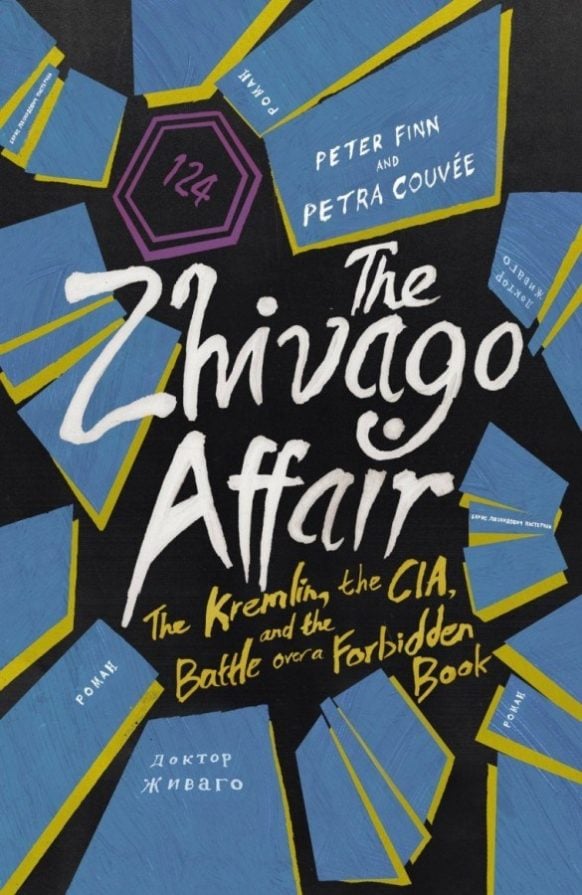The Zhivago Affair by Peter Finn & Petra Couvée
Movies were forbidden in my family but I can remember as a rebellious teenager sneaking off with a friend to watch David Lean’s magnificent film Doctor Zhivago, based on the international bestseller Doctor Zhivago by Boris Pasternak, first published in English in 1958 – a tragic yet exhilarating and poetic love story set in the USSR during and after the Russian Revolution. At the time my friend and I fell in love with the beautiful Julie Christie and were mesmerised by the dark eyes and accent of Omar Sharif, but we also found ourselves spellbound by the movie’s many breath-taking scenes and a soundtrack that made your skin tingle. The scenes and music still haunt me today.
Only many years later, when I first read the novel Doctor Zhivago, did I realise the range and depth of Boris Pasternak’s story beyond what the movie could achieve. It stands as one of the great novels of the twentieth century (shelved in our library under “Classics”). Now, in The Zhivago Affair, the research of Peter Finn and Petra Couvée has taken the Doctor Zhivago experience a step further. In their detailed 2014 publication that includes interesting black-and-white photographs, they allow us behind the scenes, as it were, of Pasternak’s writing and his novel’s publication.
Finn and Couvée reveal Pasternak’s Doctor Zhivago took 10 years to write and embodied all the ideas and emotions of a poet who was already recognised as Russia’s greatest, both at home and abroad. (The likelihood Pasternak agreed with that assessment didn’t endear him to everyone.) Battling constant Soviet censorship and restriction on writers, Pasternak succeeded in “secretly” publishing his single great novel in the West in 1957 – in translation in Italy, where the Italian Communist Party also tried to suppress it. When Pasternak was awarded the Nobel Prize for Literature in 1958, the government of his home country wouldn’t let him accept it. He died in 1960.
In The Zhivago Affair, the authors set the Russian literary scene of the Soviet years, including the writing commune in Peredelkino where Pasternak lived and wrote; Pasternak’s odd personal relationship with Stalin; and the writer’s gradual disenchantment with the Soviet system he once championed, which finds expression through his character Yuri Zhivago. They detail Pasternak’s relationships with his two wives and mistress Olga Ivinskaya, model for Lara in his novel; and the history of the publication and dissemination of Doctor Zhivago not just throughout the West but back into the USSR during the Cold War years, entailing the secret participation of the CIA.
When I was halfway through writing this review, the “Charlie Hebdo” atrocities by Muslim extremists took place. Those events opened my eyes to a fresh way of reading The Zhivago Affair, drawing my attention to the preoccupation of both the Kremlin and the CIA with seeing literature (and art in general) as a powerful way to transform society – a preoccupation the authors of The Zhivago Affair tend to dismiss in retrospect as an over-reaction (page 265). I’m not so sure.
Conversely, The Zhivago Affair helped me see the attempted muzzling of Charlie Hebdo artists and editors, like the Islamic “fatwah” declared on Salman Rushdie and the subsequent murders of translators and publishers committed in Islam’s name, or the murder of other writers such as Ken Saro Wiwa in Nigeria, in the wider context of the never-ending attempt by oppressive religions and regimes (including Communist Russia’s) to censor and repress artists and literature – to shut down the place where one might say the conscience of human society operates and flourishes.
So the issues opened up by The Zhivago Affair are in my opinion very much alive.
The Zhivago Affair by Peter Finn & Petra Couvée
Derek Hornsey
SMSA Staff


